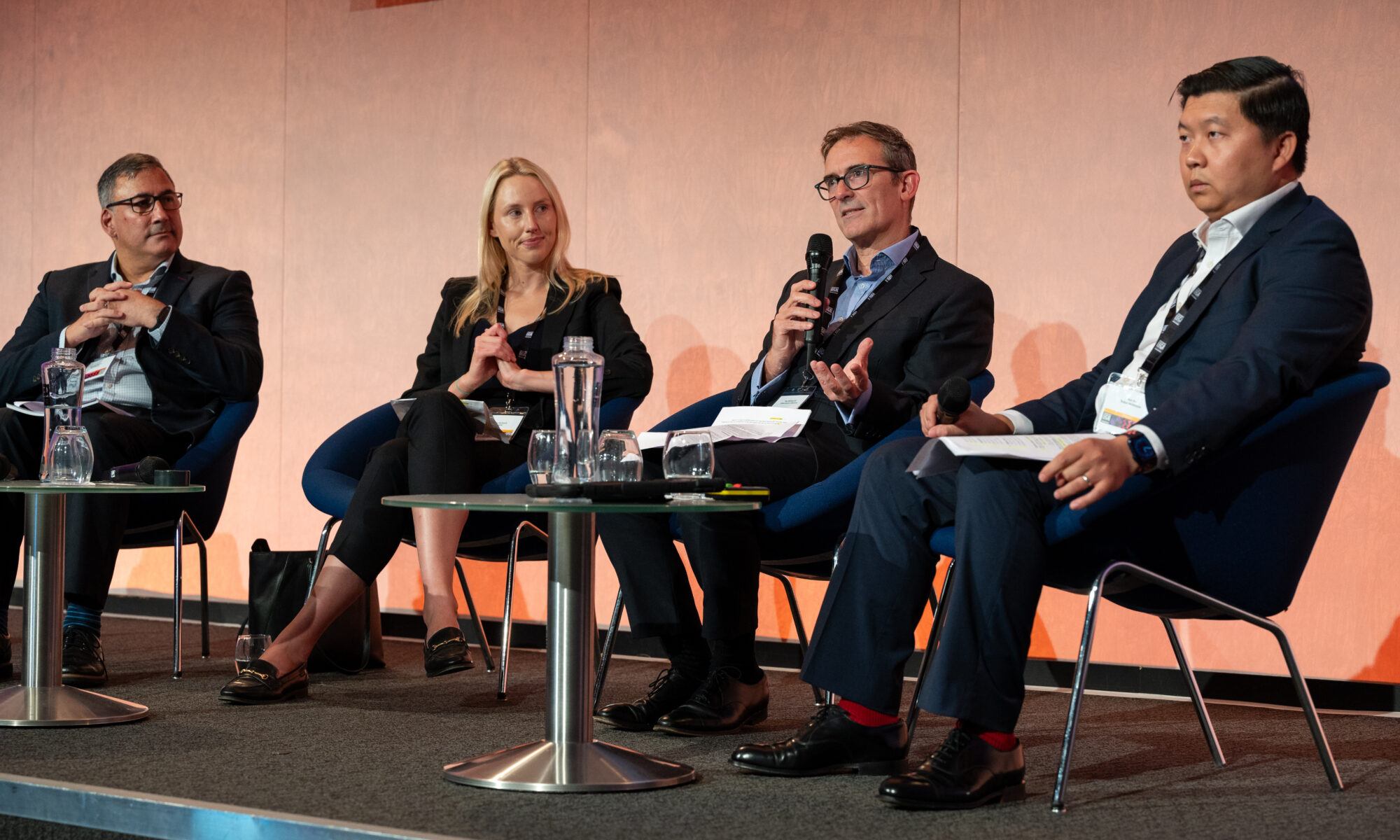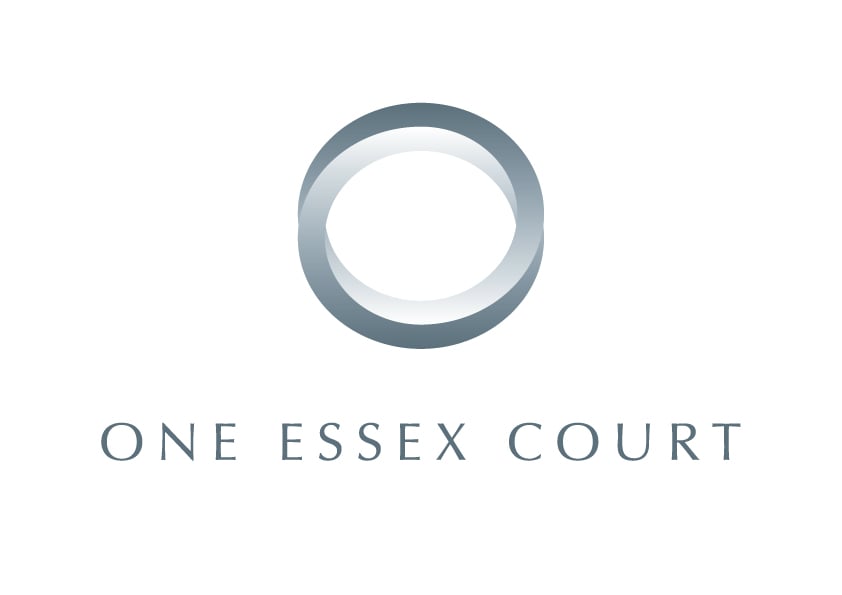Event Report
The Legal Business Commercial Litigation Summit 2024 saw barristers, solicitors, in-house counsel and other professionals in the disputes sector come together to discuss the key issues in today’s commercial litigation market – and how to stay ahead of the game.
The event, which was held at the Queen Elizabeth II Conference Centre in Westminster, got underway with a panel entitled ‘When litigation is stranger than fiction (and even your partner tolerates you reading out the best bits from the daily transcript)’, led by One Essex Court’s Neil Kitchener KC, who was joined by CMS partner Vanessa Whitman and fellow One Essex Court barristers Sandy Phipps and James Fox.
Discussing their involvement in the high-profile and dramatic case of Kallakis v AIB Group, the panel looked back on the improbable series of events over the history of the long-running case, which involved one of Britain’s biggest mortgage frauds, orchestrated by Achilleas Kallakis, dubbed ‘Britain’s most successful serial confidence trickster’.
The panel reflected on their work acting for Irish Bank AIB, taking delegates through the many jaw-dropping twists and turns of a unique case which dated back to the days before the credit crunch of 2007, including AIB confronting Kallakis on the day Lehman Brothers collapsed, his increasingly bold litigation strategies, and the moments when the fraudster’s mask slipped.
As panellists recalled, it was one of those cases when ‘you can’t really believe you’re getting paid to do something as fun as it is.’
A line-up of in-house counsel then took to the stage for the second panel, sharing tips on how to deal with major commercial disputes and offering insight into litigation from the client-side perspective.
The international panel was led by Signature Litigation Paris partner Sylvie Gallage-Alwis, who was joined by Kevin L’Heveder, associate GC, EMEA, at Vertiv; Honeywell Industrial Automation EMEA GC Hicham Khellafi; and Brittany F. Boykin, in-house counsel – head of claims and underwriting at Brit Insurance.
The panel shared in-house insight into a range of topics, from costs and fee structures to relationships with external counsel to the best (and some of the worst) jurisdictions in which to litigate. To close out the discussion, the group discussed the pros and cons of AI, such as increased efficiency and the risks of ‘AI-washing’.
Key takeaways included the observation that the relationship between companies and their customers can be “like a couple – there are disputes, but it’s not always about winning and losing, it’s about preserving relationships.’
After networking over coffee, attendees had the chance to get more involved in the discussions, with Baker McKenzie’s interactive panel. Solicitor-advocate Ben Ko led the panel on ethics in litigation and internal investigations, joined by Bakers disputes partner Francesca Richmond, 4 New Square’s Paul Mitchell KC, H&M legal counsel Ella Stolwerk and Michael Isaacs, deputy general counsel and director of litigation at Lyca Group.
The panel discussed how to recognise aggressive correspondence and avoid it, the regulatory obligations that both in-house and external counsel are under, taking ownership of mistakes, and how to avoid bias during investigations. Delegates interacted with the panel by taking part in interactive polls on hypothetical ethical dilemmas.
Up next was an AI-focused panel, moderated by OpenText legal tech solutions consultant Meagan Suave. The session, which looked at whether existing practice directions support the adoption of generative AI, included informed and in-depth input from Pennington Manches Cooper partner Charlotte Hill, Slaughter and May partner Richard Jeens, and Tom Whittaker, director and solicitor advocate in the dispute resolution team at Burges Salmon.
Delving into all things AI, the panellists discussed the potential benefits of AI in commercial litigation, as well as the associated risks. While AI can potentially be a more cost- and time-effective way of cutting through large volumes of material, the panellists pointed out that questions remain around disclosure of AI use and issues of confidentiality when uploading certain documents to LLMs. Questions from the floor echoed these concerns, such as whether AI could be scapegoated for human misbehaviour in disclosure.
After lunch, Legal 500 global bar editor Will Tolcher, launched the afternoon sessions with the first-ever live episode of the Legal 500 podcast, joined by Alexander Gunning KC, chair of the Commercial Bar Association.
The discussion centred around the value of interaction between in-house counsel and the commercial Bar, the huge commercial cases taking up swathes of barristers, and the cross-pollination between law firms and chambers.
The next generation of talent, particularly female barristers, was a focal point of the discussion, including the fierce competition in the sector and increased speaking opportunities for junior barristers. The discussion addressed the gender pay gap still prevalent within the Bar, noting Combar’s efforts to investigating the issue. Gunning KC also encouraged in-house counsel to be proactive on the issue, calling out bias when they see it and continuing to request diverse teams.
In a world where brand damage can be more costly than the case itself, the final panel of the day discussed the increasing importance of reputation management in litigation. Georgina Stanley, global head of research and reporting at the Legal 500, was joined by Maltin PR founder and managing partner Tim Maltin, and Clive Coleman, who joined Maltin in 2021 after a long career as the BBC’s legal correspondent.
The audience heard about the extensive PR strategy that can go into news and features on litigation – sometimes running to many months – as well as the importance of speed and getting ahead of a scoop.
The panellists discussed the necessity of finding the right legal PR team, with good PR management making ‘even the worst day in court look like a good day’, as well as the rise in group litigation, and how effective PR can maximise the number of claimants involved in such actions. The session covered owning up to mistakes and how an apology can go a long way. When asked for his top tip, Maltin was quick to respond: ‘never lie to a journalist’.
The event was sponsored by Baker McKenzie, Signature Litigation, OpenText, One Essex Court, Maltin PR, and networking sponsors Flex Legal and Independent Mediators.







